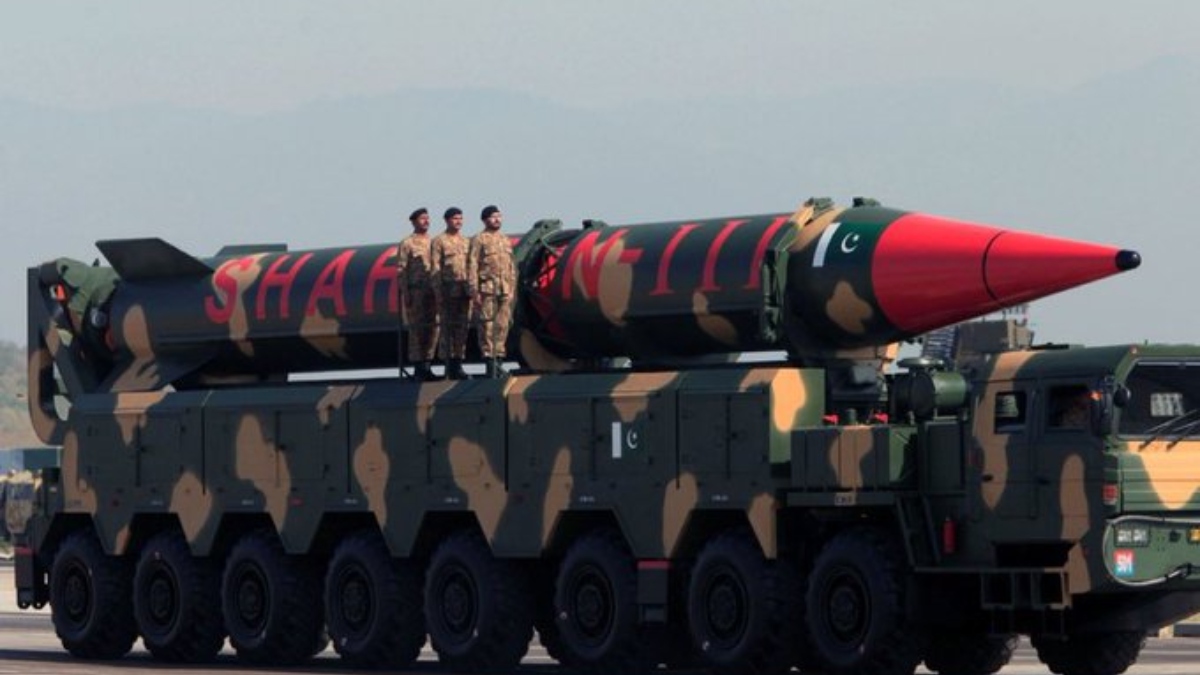Two months after Pakistan successfully test-launched its Shaheen-II surface-to-surface ballistic missile, a senior US Biden administration official on Thursday raised concerns about the country's ballistic missile programme as "an emerging threat to the United States".
During a speech at the Carnegie Endowment for International Peace, deputy national security adviser Jon Finer raised the concerning issue while questioning the "real aim" of the ballistic missiles. "It's hard for us to see Pakistan's actions as anything other than an emerging threat to the United States," Finer said.
He said if Pakistan continued to develop increasingly sophisticated missile technology which ranged from long-range ballistic missile systems to equipment that would enable the testing of significantly larger rocket motors, it would acquire the "capability to strike targets well beyond South Asia, including in the United States."
The United State’s Deputy National Security Advisor, John Finer says that #Pakistan is developing, “increasingly sophisticated” and “significantly larger” ballistic missiles that could target the United States, including Intercontinental Ballistic Missiles (ICBMs). pic.twitter.com/sXqtZBRLqJ
— Geo Political Updates (@GeoPolUpdates) December 20, 2024
Finer's statement comes a day after the US sanctioned Pakistan's National Development Complex (NDC), the state-run defence agency that oversees the programme, and three Karachi-based companies — Akhtar and Sons Private Limited, Affiliates International, and Rockside Enterprise - under "proliferators of weapons of mass destruction and their means of delivery."
Pakistan test-fired the Shaheen-II, a medium-range missile that can strike up to 1,500 kilometres which is far enough to cover significant portions of South Asia. It is powered by a solid fuel engine and boasts enhanced accuracy and survivability against hostile threats. It developed Shaheen-III in 2021. The latter can reach targets of more than 2,750 kilometres.
The US sanctioned (again) Pakistan due to its legitimate development of ballistic missiles, including the SHAHEEN-series (nuclear-capable) ballistic missiles. https://t.co/dMKPnsItOz pic.twitter.com/7eq4TIhHpQ
— MenchOsint (@MenchOsint) December 18, 2024
Islamabad reacted to the sanctions calling it "discriminatory" and aimed at exacerbating the regional power imbalance. It stated that its strategic program was defensive in nature.
While the US concerns over Pakistan's missile programme could also be over Islamabad's close collaboration with Beijing - the solid propellant missile has been reverse-engineered from the Chinese M-9, M-11 and M-18 missiles - the nuclear issue will continue to be an irritant in the US-Pakistan relationship. Regional experts believe US wariness about Pakistan's missile programme began during President Obama's second tenure onwards.
Also read: Pakistan flight tests high-precision 'SMASH' SBLM missile. Should India be worried?
While it is more of a policy concern for the US, analysts say Pakistan's nuclear and missile program is aimed at neighbouring India. Even Pakistan's media cite "insiders" who claim that the missile programme is primarily focused on threats from its eastern border (India).
But, Pakistan has put the blame for the sanctions on India, stating it was carried out due to pressure from New Delhi. Karachi-based newspaper Dawn cited unnamed diplomatic sources in Washington that said "the deputy national security adviser’s contention may have been an attempt to ramp up pressure on Pakistan, presumably at New Delhi’s behest."
Islamabad also accuses the US of turning a blind eye to India's arsenal of long-range ballistic missiles while targeting Pakistan’s strategic capabilities.
The diplomatic sources also told Dawn that Islamabad was concerned by the growing US defence partnership with India, stating that the US has facilitated the transfer of high-end defence technologies to India, including advanced missile systems.
The US and India have also collaborated on missile development, including the co-production of systems under the Defence Technology and Trade Initiative (DTTI) and the Initiative on Critical and Emerging Technologies (iCET).



